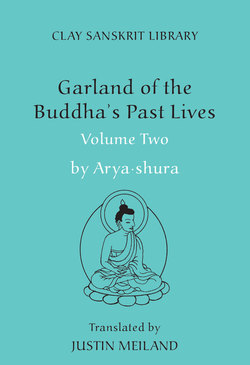Читать книгу Garland of the Buddha's Past Lives (Volume 2) - Aryashura - Страница 32
На сайте Литреса книга снята с продажи.
Оглавлениеwho are not kings). In story 32, the Bodhi·sattva is a prince who persuades his father to allow him to enter the forest as an ascetic.
21 See especially 22.115 [66]–119 [70], 22.151 [94]–156 [99], 23. 118 [63]–128 [73], 24.62 [38]–66 [42], 25.44 [23]–50 [29], 26.76 [38]–83 [44], 27.42 [17]–63 [35] 28.69 [38]–79 [47] 29–71 [49]–80 [58], 30.25 [11]–27 [13], 31.106 [52]–111 [55], 32.33 [21]–64 [48]. Only stories 33 & 34 do not mention kings. While kingship is not a major issue in story 30, the Bodhi·sattva does criticize a king for immoral behavior in 30.25 [11]–27 [13]. In story 24 (24.62 [38]–66 [42]), it is not the Bodhi·sattva who instructs a king, but a man suffering from the bad karma of betraying the Bodhi·sattva’s friendship.
22 Some passages refer to the “three pursuits” of virtue, profit and desire (22.119 [70]). However, virtue is always treated as the primary concern. See, for example, 29.75 [53]:: “Turn your wealth into an instrument for virtue.” The contrast between this ideal form of kingship and conventional kingship is highlighted by the amazed reactions of kings when they witness the Bodhi·sattva’s virtue. See, for example, 27.42 [17]: “Ministers and other men serve their king. But it is not for the king to act for their sake. Why then did you sacrifice yourself for the sake of your dependents?”
23 See also 31.106 [52]–111 [55] for an attack on the pragmatic approach of politics (niti).
Select Bibliography
Collins, S. 1998. Nirvana and other Buddhist felicities: Utopias of the Pali Imaginaire. Cambridge: Cambridge University Press.
Edgerton, F. 1953. Buddhist Hybrid Sanskrit Grammar and Dictionary. 2 vols. New Haven: Yale University Press.
Hahn, M. 2001. ‘Text-critical Remarks on Aryasura’s Mahisa- and Satapattrajataka.’ Le Parole e i Marmi: Studi in onore di Raniero Gnoli nel suo 70 compleanno. Ed. Raffaele Torella Roma: ________
